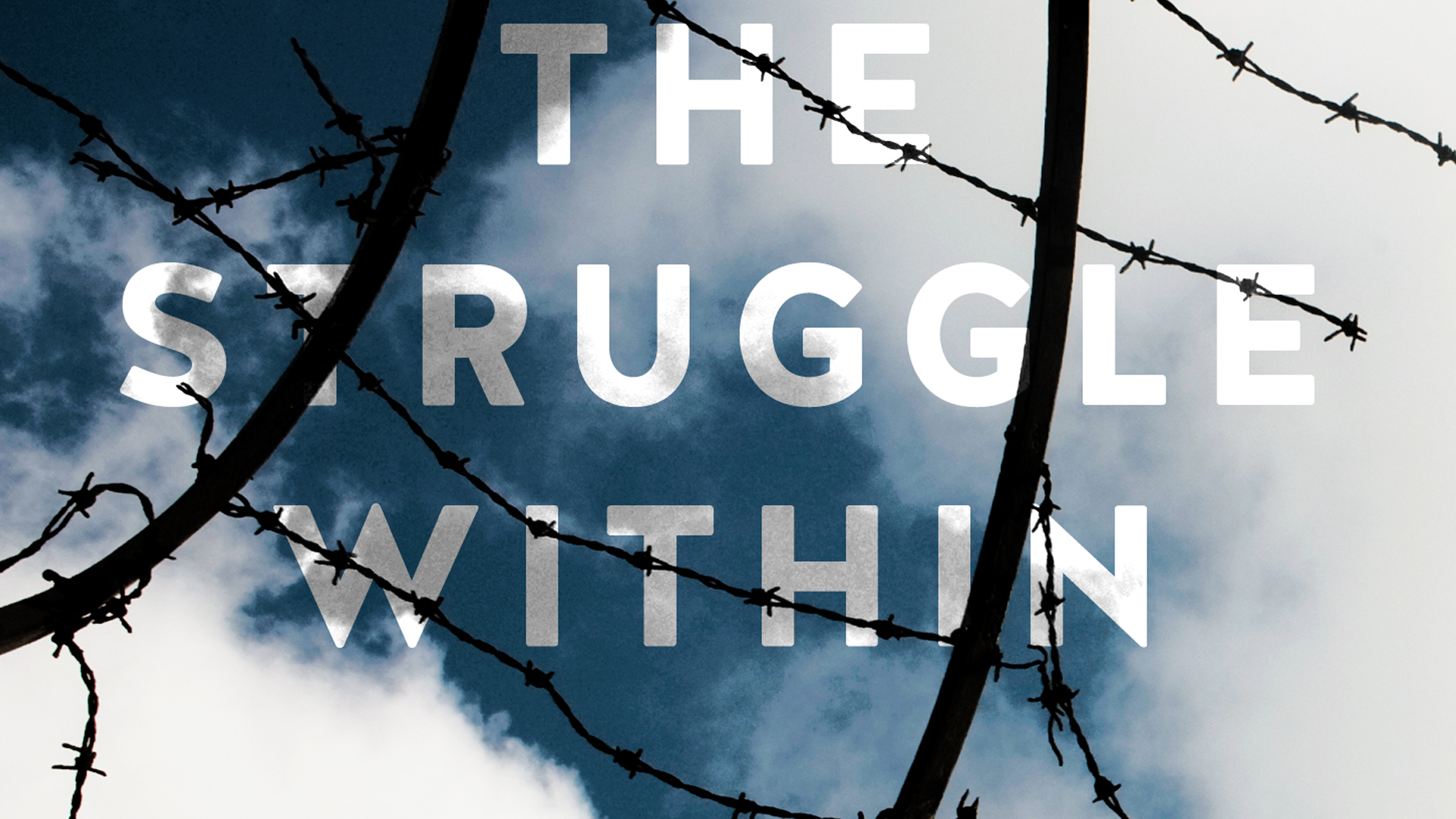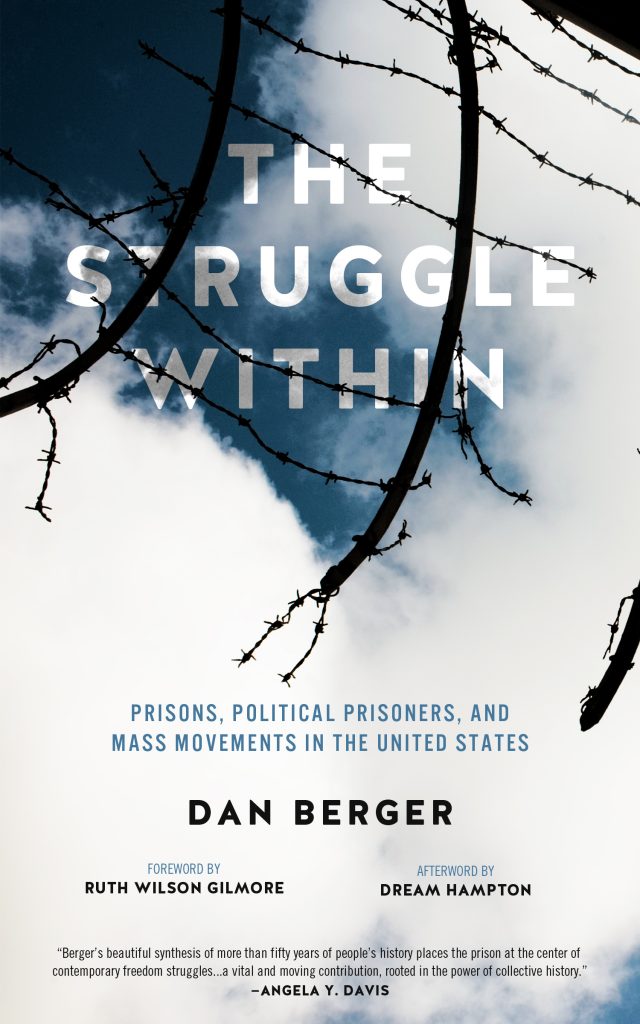WIN Magazine
Winter 2015
Dan Berger argues, in his new book The Struggle Within: Prisons, Political Prisoners, and Mass Movements in the United States, that “Working to free political prisoners goes hand in hand with exposing the façade that the United States is a country where injustice is minimal and solved through electoral politics.” This slim volume provides ample evidence of movements in the United States that sought answers to injustice outside of electoral politics and will inspire some readers to work on freeing the still-incarcerated members of those movements.
Berger is a Professor of Comparative Ethnic Studies in the University of Washington system, but this work is highly accessible, meant for activists and general audiences interested in political prisoners in recent U.S. history. The book situates political prisoners within the movements that gave rise to them, addressing Black Liberation, the American Indian Movement, Puerto Rican Independence, Chicano Liberation, the Weather Underground and their offshoots, radical environmentalists, and recent whistleblowers. Numerous black- and-white images are flecked throughout its pages, enlivening and complimenting the text. Berger covers instances of state repression ranging from highly publicized cases of political prisoners like Mumia Abu-Jamal and Leonard Peltier, to more obscure events like the 1970s conflict between the Chicano organization Crusade and the Denver Police Department.
The Struggle Within decenters whiteness in the history of U.S. radicalism by drawing a genealogy running from Third World liberation struggles, to radicals of color in the U.S., and then to their racially privileged allies and later white-majority movements, like Earth First!, who consciously drew inspiration from past movements led by people of color. Berger’s approach is organized through ethno-racial categories, an approach reflecting its grounding in particular movements, but one with the unfortunate tendency of deemphasizing some of the connections between these movements and letting some groups (such as Asian- Americans) fall through the cracks. The Struggle Within highlights the contributions of many women and queer- identified individuals throughout, a welcome antidote to the male-centric approaches of some other work on political prisoners. At the same time, it would have been fruitful for Berger to carry his assertion that the movement to free political prisoners “is a movement rooted in care” into a look at the many women who provided the care labor that allowed for these movements to function. Berger provides many examples of militant women jailed for their actions and political commitments, but reproduces the invisibility of the women who do the work of prisoner support, maintaining networks of mutual aid, and caring for families fractured by incarceration. The Struggle Within covers a great deal of ground in a small space, but probably would have benefitted from some significant editing and expansion. The organization is quite lop- sided, the first chapter is forty pages long and the next three are fifteen, four, and eight pages, respectively.
The chronologies Berger draws routinely loop back in ways that disrupt the narrative flow; at the same time, the sheer density of radical political actions during the time he covers and the messiness of social conflict makes a purely linear account impossible. With more room, Berger could have also provided a better ratio of analysis to historical background, as the historical background forms the bulk of this work. Berger’s four-page conclusion is the book’s strongest part, in that his analysis of the “direct connection between the struggles of yesterday and those of today” is both original and urgent. The rest of the text provides a succinct and well-researched account of the radical left’s political prisoners, but this history has been presented before across many formats.
Dan Berger’s The Struggle Within is a quick and compelling read that provides an excellent introduction to political prisoners in the late 20th-century United States. Not only are many ‘60s and ‘70s radicals, especially radicals of color, still languishing in prison, but their experiences of state repression also hold important lessons for contemporary social justice movements. Berger’s latest work should spark a renewed conversation about political prisoners in the age of mass incarceration. Although this conversation is not fully articulated in The Struggle Within, we can look forward to Berger being an important voice in it in the future.







